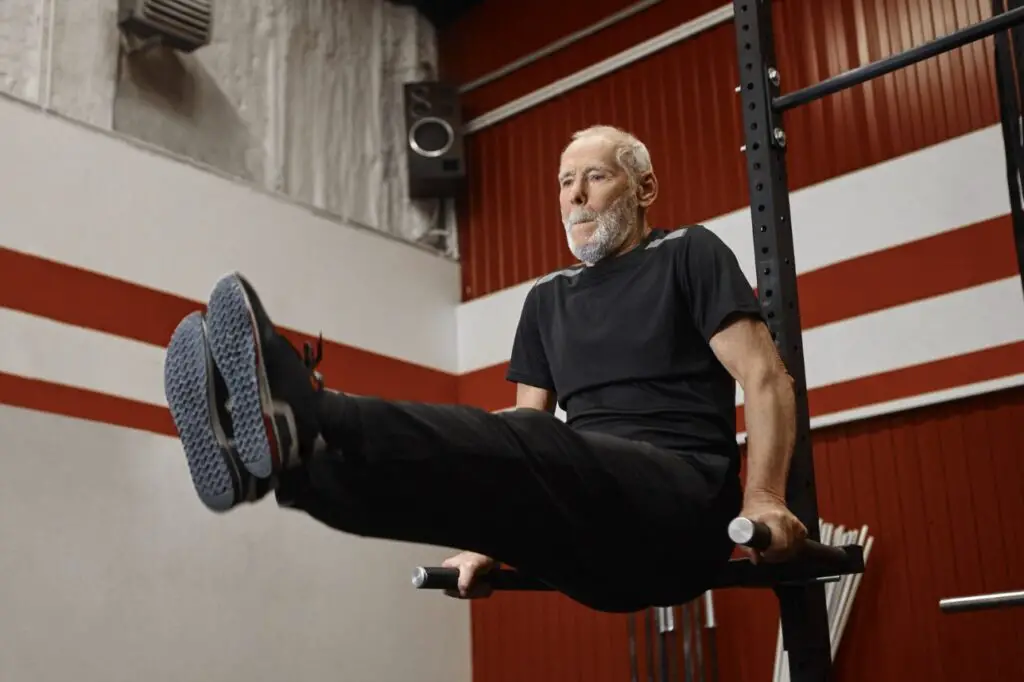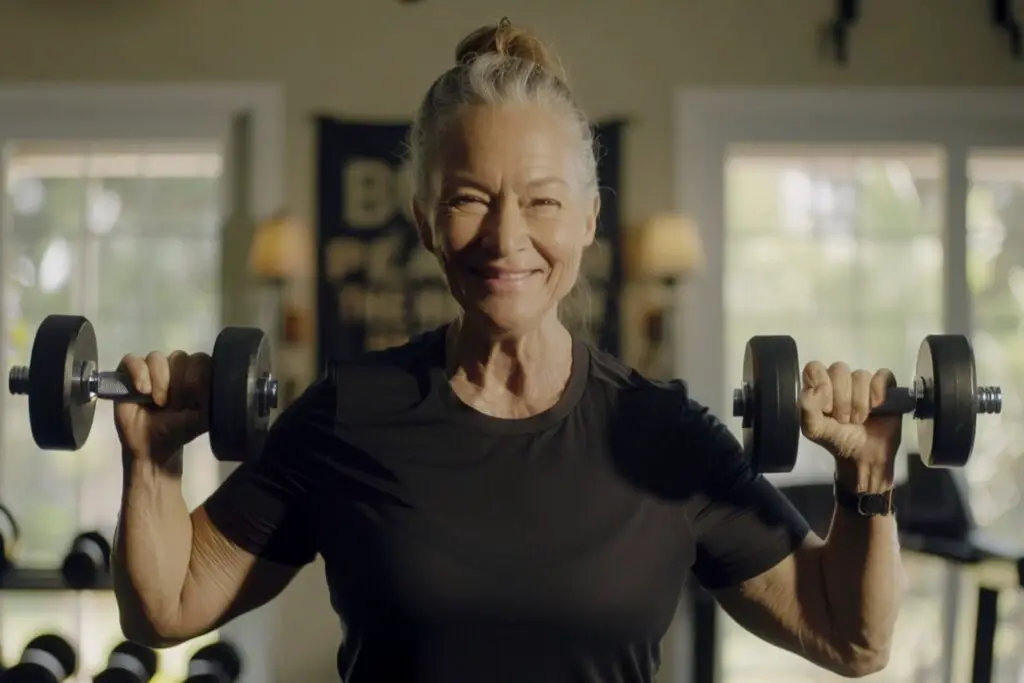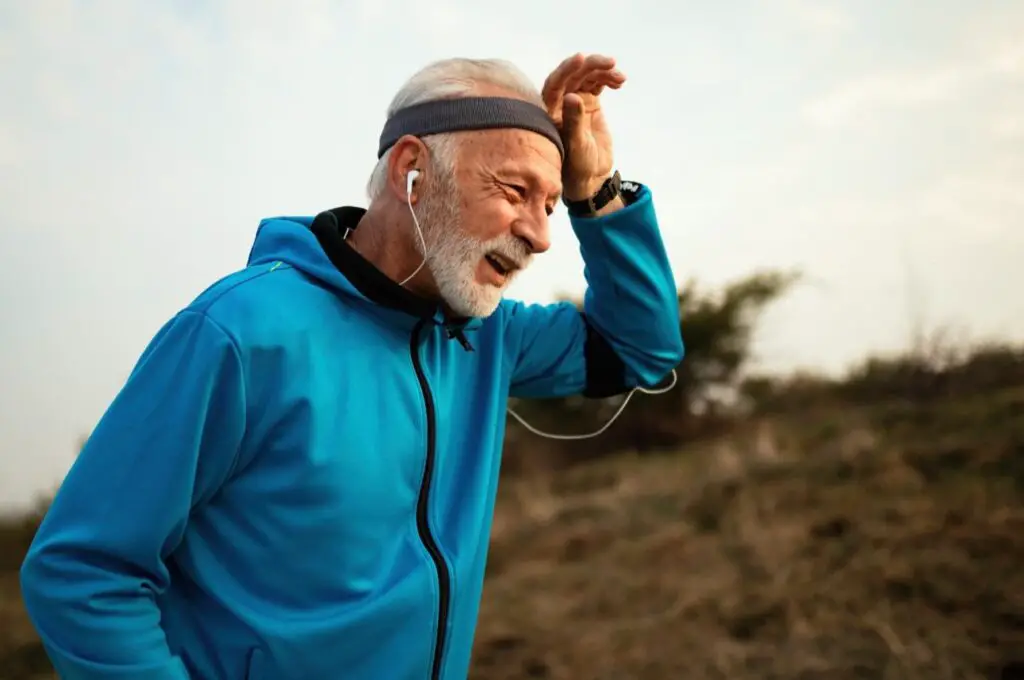As we grow older, our bodies undergo various changes, and it’s essential to adjust our lifestyle to maintain optimal health. While there’s no need to stop being active or adventurous in your 60s and beyond, certain activities can be harder on your body and potentially harmful to your long-term well-being. To help you prioritize your health, here’s a list of 10 activities you should avoid for better health in your 60s and beyond. By making these changes, you can ensure a more comfortable and active lifestyle as you age.
1. High-Impact Exercise Without Proper Warm-Up
High-impact exercises such as running on hard surfaces or jumping exercises can strain your joints, particularly your knees, hips, and lower back. While it’s great to stay active, these high-impact movements may lead to injuries and joint wear over time. It’s essential to prioritize low-impact alternatives like swimming, cycling, or walking to protect your joints while still enjoying physical activity. Always ensure a proper warm-up before any exercise to prevent muscle strains and joint stress. Even if you are used to intense workouts, switching to lower-impact exercises can be a wise decision to prevent excessive strain on your body.
2. Sitting for Long Periods of Time
Sitting for extended periods is one of the worst things you can do for your health, especially as you age. Prolonged sitting has been linked to increased risk of heart disease, diabetes, and joint problems. In your 60s and beyond, it’s crucial to break up long sitting sessions by standing, walking, or stretching every 30-60 minutes. Even a short stroll or a few minutes of stretching can significantly reduce the negative effects of sedentary behavior and help keep your body moving. Invest in a standing desk or set reminders to get up regularly throughout the day. If you’re watching TV or working from home, make sure to incorporate mini-movements like stretches or light walking during breaks.
3. Skipping Sleep for Extended Periods
As you age, the body’s ability to recover and repair itself is influenced by the quality of your sleep. Skipping sleep or not getting enough rest can lead to a variety of health problems, including increased risk of heart disease, cognitive decline, and weakened immune function. Prioritize a consistent sleep schedule, aiming for 7-9 hours of sleep each night. If you struggle with insomnia, consult a healthcare provider to address any underlying issues and ensure you’re getting restful sleep. Avoid caffeine late in the day, limit screen time before bed, and create a calming bedtime routine to improve your sleep quality.
4. Extreme Dieting or Fad Diets
While maintaining a healthy diet is crucial for your overall well-being, extreme dieting or following fad diets can do more harm than good in your 60s and beyond. These diets often lack essential nutrients and can lead to muscle loss, decreased bone density, and metabolic imbalances. Instead, focus on a balanced, nutrient-dense diet that includes a variety of fruits, vegetables, lean proteins, healthy fats, and whole grains. Consulting a nutritionist can help you tailor a diet that meets your specific needs. Avoid restricting food groups or adopting overly restrictive diets that may leave you feeling fatigued and malnourished. Aim for a lifestyle change rather than a quick-fix diet.
5. Lifting Heavy Weights Without Supervision
Strength training is important as we age because it helps maintain muscle mass and supports bone health. However, lifting heavy weights without proper guidance or supervision can lead to injuries, particularly in the back, shoulders, and wrists. Instead of attempting heavy lifting on your own, consider working with a trainer or participating in a supervised exercise class. Additionally, focusing on lighter weights with higher repetitions can help build strength without putting too much strain on your body. Be sure to use proper form when lifting weights to avoid stress on the joints, and always warm up before engaging in strength training exercises.
6. Overexerting Yourself During Physical Activity
As we age, it’s natural for our bodies to require more time to recover from strenuous physical activity. Overexerting yourself during exercise, especially without giving your body enough rest, can lead to injuries such as muscle strains, ligament sprains, and joint discomfort. It’s important to listen to your body and know when to slow down. If you feel fatigued or experience pain, take a break or modify your exercise routine. Prioritize recovery days and give your muscles time to rebuild and grow stronger. You don’t have to push yourself to the extreme to stay healthy. Moderate exercise with proper rest can provide lasting benefits and reduce your risk of injury.
7. Excessive Alcohol Consumption
Excessive alcohol intake can have serious health consequences, particularly as you age. It can increase your risk for high blood pressure, liver disease, cognitive decline, and even falls. In your 60s and beyond, your metabolism slows down, and the effects of alcohol become more pronounced. It’s important to drink in moderation and be mindful of your alcohol consumption. If you find that alcohol is impacting your health or daily life, consider cutting back or seeking support. Regularly consuming alcohol in excess can lead to poor sleep quality, increased stress, and a weakened immune system, all of which can make it harder to enjoy your golden years.
8. Smoking or Exposure to Secondhand Smoke
The harmful effects of smoking are well-documented, and as we age, the damage caused by smoking becomes even more pronounced. Smoking can lead to respiratory issues, cardiovascular disease, and an increased risk of cancer. In addition, exposure to secondhand smoke can also have adverse health effects, particularly for those with weakened immune systems. If you’re still smoking, it’s never too late to quit. Speak to your healthcare provider about smoking cessation programs that can help you stop for good. By quitting smoking, you can improve lung function, reduce the risk of heart disease, and lower your chances of developing a variety of age-related health conditions.
9. Ignoring Mental Health and Stress Management
Mental health plays a crucial role in overall well-being, especially as you age. Ignoring mental health can lead to feelings of isolation, depression, anxiety, and cognitive decline. In your 60s and beyond, it’s vital to incorporate stress-reducing activities into your routine, such as meditation, yoga, or simply taking time for hobbies that bring you joy. Make sure you also maintain strong social connections, as these are essential for maintaining mental well-being. Seeking professional help when needed can also improve your emotional health. Don’t overlook the importance of mental wellness—practicing mindfulness, journaling, or connecting with loved ones can support emotional well-being as you age.
10. Overworking and Not Prioritizing Leisure Time
In today’s fast-paced world, many people in their 60s and beyond continue to work full-time or take on responsibilities that can lead to burnout and stress. While staying productive is important, overworking can negatively affect your physical and mental health. It’s crucial to set aside time for rest and leisure activities that recharge you. Whether it’s spending time with family, pursuing a hobby, or simply enjoying nature, make sure to prioritize your well-being by taking breaks and reducing stressors that contribute to fatigue. Schedule time for relaxation and fun, as doing so can enhance your overall quality of life. Taking care of yourself in this way will help you feel more energetic, less stressed, and able to enjoy your later years to the fullest.
Final Thoughts
Your 60s and beyond should be a time for enjoying life, maintaining health, and staying active. By avoiding activities that can harm your physical and mental well-being, you can create a lifestyle that promotes longevity and overall health. Instead of focusing on what you can’t do, embrace activities that nourish your body and mind, ensuring that you can enjoy every stage of life to the fullest. Prioritizing gentle exercise, proper rest, a balanced diet, and stress management will help you maintain your vitality and embrace a vibrant, healthy future.
By making small adjustments to your habits and routines, you can significantly improve your quality of life as you age. Remember, it’s all about listening to your body and finding the right balance of activity and rest for your health. This proactive approach to wellness will help you enjoy your 60s and beyond with greater energy, confidence, and joy.












